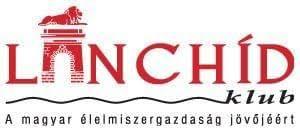Chain Bridge Club October exclusive: Even with high purchasing power, there are challenges: an up-close view of the Belgian market
Péter Szautner, managing director of FrieslandCampina gave an insight into the Belgian retail market, with a special focus on the dairy sector at the October meeting of the Chain Bridge Club.

This article is available for reading in Trade magazin 2024/11

Péter Szautner
CEO
FrieslandCampina
Belgium has a population of 11.8 million and it is one of the most densely populated countries in the EU. It accounts for 3.5% of the EU’s GDP, compared with Hungary’s 1.2%. Belgium’s GDP per capita is EUR 44,300, while in Hungary it is EUR 28,700. Belgium is the 9th largest milk producer in the EU, responsible for 3.5% of total EU production. Belgium has an unemployment rate of 5.5%, which is similar to Hungary’s.
FrieslandCampina is a major exporter
FrieslandCampina operates four sites in Belgium, with a total of 1,200 employees, generating annual sales around EUR 1.3bn. The plants process approximately 210 million litres of Belgian milk per year and export to more than 40 countries, making the company a key player in the Belgian dairy sector. Last year the subsidiary realised EUR 450m sales from finished products sold in the Belgian and French markets and from B2B activities. FrieslandCampina’s headquarters is in Ghent, while three other plants account for the bulk of its production, 70% of which is exported. This differentiates FrieslandCampina from the local, Belgian-focused players, as these plants also supply products to other markets within the group. Belgium has around 540,000 dairy cows and 5,800 registered dairy farmers, the majority of which are family businesses with 150-300 cows, producing a total of 4.4 billion litres of milk, compared to Hungary’s production of around 2 billion litres. Belgium imports EUR 5bn worth of dairy products and exports in the value of EUR 5.5bn every year.
Inflation hit the dairy market too
In Belgium milk prices peaked in October 2022 at EUR 61/100 kg and after a significant decrease the lowest price was EUR 39/100 kg in September 2023. Belgian processors include a variety of players, both cooperative and private, and almost all the big firms are represented, such as Danone, FrieslandCampina, Arla, Savencia, Bel and Lactalis, but there are also strong local players such as Inex, milcobel or the emerging PurNature. Consumer prices in Belgium – and this is also true for dairy products – are a little higher than in neighbouring countries, in part because labour costs in Belgium are higher than in neighbouring countries. Despite the slightly higher prices, household consumption is still high thanks to the high purchasing power in Belgium, which ranks third in Europe with an index of 121 compared to the EU average, while Hungary ranks second to last with an index value of 68 in 2023. //
Related news
Fashion, drones and sustainability – the new face of agriculture at the AgriTech InnoExpo event
🎧 Hallgasd a cikket: Lejátszás Szünet Folytatás Leállítás Nyelv: Auto…
Read more >dm welcomes customers with stable prices and a superb price-value ratio
🎧 Hallgasd a cikket: Lejátszás Szünet Folytatás Leállítás Nyelv: Auto…
Read more >Related news
Retail sales of organic products in Hungary increased by 13.9% – our country is the second fastest growing market in the European Union
🎧 Hallgasd a cikket: Lejátszás Szünet Folytatás Leállítás Nyelv: Auto…
Read more >









